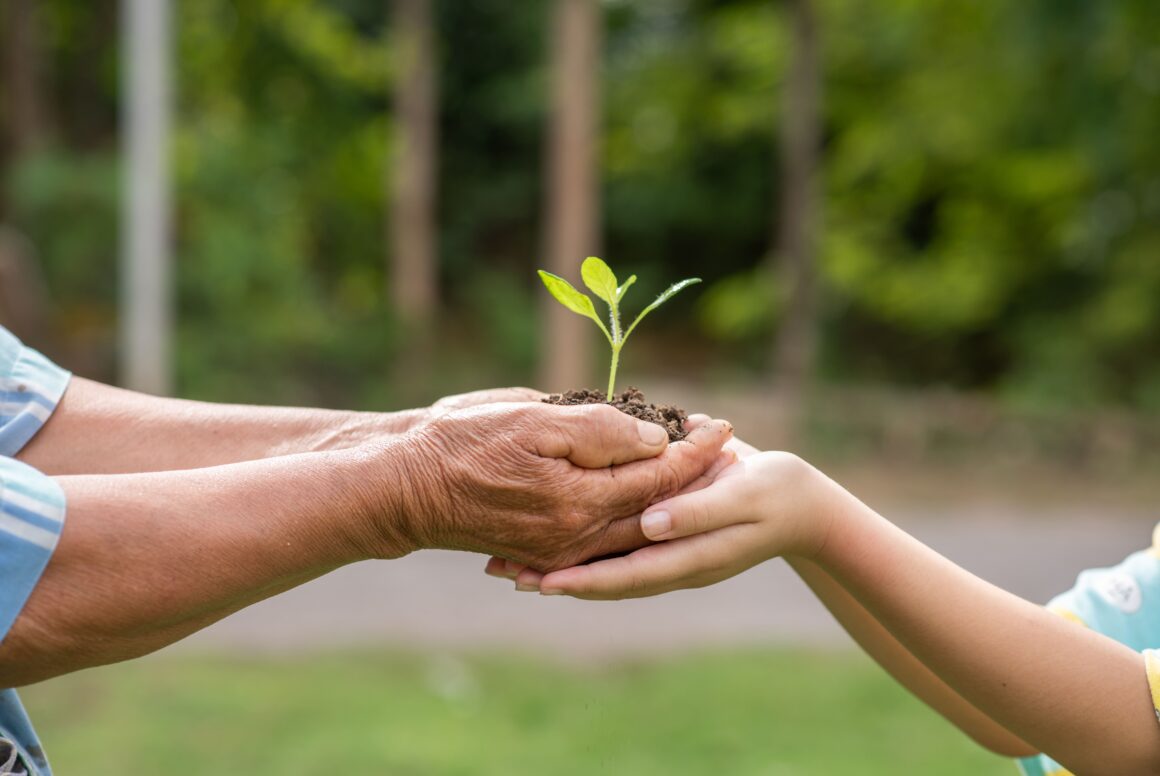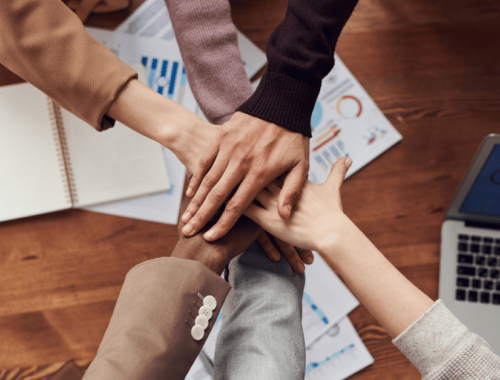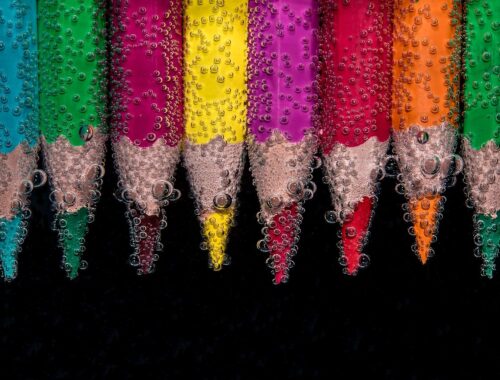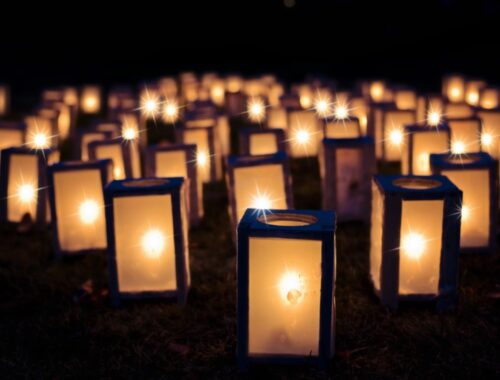
The HSP World Podcast Ep. 12: How Can HSPs Cope with Eco-Anxiety?
The HSP World Podcast is available on iTunes, Google Play, Podbean, and Spotify.
Thomas: Hi and welcome to the HSP World Podcast. With each episode we invite a guest with the HSP Trait to have a conversation about a burning HSP-related question that they have. We’re not coaches or therapists. We’re HSPs holding space with you. I’m one of your hosts, Thomas, and your other hosts are;
Robyn: Robyn.
Rayne: and Rayne.
Robyn: All right. Hi, everybody. Welcome back to another episode of the HSP World Podcast and with us today we have a guest named Elliot. Hi Elliott.
Elliott: Hi everyone.
Robyn: Thanks for joining us today. Elliott, I’m wondering if you can tell us what your question is?
Elliot: Yeah. So my question is the eco-anxiety or a climate anxiety and how especially HSPs could cope with, um, this, this thing.
Robyn: Okay, great. Good question. We’d spoken a little bit earlier and you said you think that highly sensitive people in particular would be affected by this.
Elliott: Yes, because, uh, from the, um, highly sensitivity trait, I have the impression that we are more sensitive to our environment and also about change.
And since like the core about this eco-anxiety is actually a set of negative feelings related to climate change and the destruction of our various ecosystems, I have the impression that’s, of course with the climate change becoming more and more important, the eco-anxiety will be a more and more important topic in the future.
But I had the impression that for HSPs it’s, uh, even more important topic and we don’t talk enough about it in general, so, yeah.
Rayne: Hmm. That’s a great question, Elliott.
Robyn: Yeah.
Thomas: Yeah, it is a good question. And I can speak to that somewhat directly, being here in California and just having gone through a tremendous number of wildfires, which, you know, are, are very tragic in themselves.
They affect a lot of people in terms off their homes being destroyed and things like that. But it also just causes a tremendous amount of smoke. And it’s just, it’s very unhealthy to go outside when we have our, our wildfire season now in California. It used to not be that way, but it seems that in a tent last 10 years, uh, at least the way I’ve experienced it, come September, usually it’s centered around September. This year, it was early because we had some dry lightening in August, but you know we have a month or month and a half or more where the air quality is so bad that, that you can’t even go outside walk. And so I can speak from experience that it definitely has increased my eco anxiety because I feel it, you know it’s something direct that it impacts me.
Rayne: Hm, thank you for sharing that, Thomas.
Um, I think for me, um, yeah, I understand, I mean, maybe I’m reading more into what you know what you’re saying, Elliot, but it feels to me like, because we’re more attuned to our natural environment and we can, you know, our nervous systems are highly developed so we can send subtle changes and big changes.
And you know, that affects our nervous system, but it also does affect our, uh, you know, well, you know, I’m not gonna speak for anybody else, but for me it affects, it does affect my emotions as well.
Because the environment is so important and, you know, I want to live just like everybody else, you know, so anything that’s threat to life, you know, the environment, you know, that’s, that’s something that that can affect my feelings personally.
What I tend to do is I like to come at things from a proactive approach. Like, you know, yeah. It’s good to recognize that, you know, that that does, that does bring up anxiety in me.
But I also like to use proactive approaches to deal with things like that. So, you know, I avoid buying plastic whenever I can, you know, products that are in plastic, you know, as much as I possibly can.
What are some other things I do, I try to use as natural environment, uh, products as I can. So instead of using different chemicals, you know, for cleaning products, I’ll use, you know, vinegar and baking soda, because all of this stuff, these chemicals end up back in our water somewhere or another, right?
And doing things like that actually helps me manage that anxiety because I’m doing what I can. I mean, I can’t control everybody else and what they do, but I can control, you know, what I do and, and ways that I can contribute to leaving as little of a, of a footprint, a carbon footprint on the planet as possible.
Um, so that’s some, that’s just kinda some of the ways that, you know, I deal with it, but you know, what about you, Robyn? What do you do?
Robyn: Um, I haven’t said anything yet because, I actually find this one particularly difficult. I mean, I, I suspect Elliot you’re totally right. That HSPs are, are more effected by this issue.
We tend to, you know, be very quick to say that we feel we have a connection to nature, to the environment, animals. A lot of HSPs are very invested in caring for the environment, or taking up practices that would reduce harmful harmful waste, just to name one example.
I think we do have a tendency to think a lot about the future and, and when things don’t seem right, when the unjust that’s another thing that gets highly sensitive people going, right?
I actually, um, I, this is not a conscious choice, but, uh, there’s a certain amount of avoidance of the issue on my part. I recognize that because I don’t feel entirely powerful, well entirely powerful, because I don’t feel that I really have the power to change the situation. I think the only way that I’ve been able to manage the anxiety is to not think about it too much.
I will engage in some of the practices that Rayne is talking about, but I think recently with some of the stats that have come out about, you know, how ineffective recycling actually is, um, things like that, you know?
I have the feeling that a lot of the actions taken by the little guys, by the, by individual agents are not going to add up to the very real and large scale changes that we need to enact very quickly if we want to avoid seeing some, some huge consequences.
So I don’t know. Now maybe I’m putting my head in the sand a little bit. I mean, like I said, I keep doing these things, I could do more. I could, you know, not ever use my car at all. I’m not taking a plane these days because no one can, but I have taken them in the last couple of years, I could have
And then, I mean, I have to say it does demotivate me a little bit. For example, there’s a store that I can go to near my house and they, it’s one of those bulk stores, right? Where you can like refill plastic containers instead of buying new ones. That it’s a, it’s a wonderful idea, really, to reduce waste.
And I remember I had a couple of moments of really, you know, maybe I see an ad go by about plastic in the ocean and I’ll feel really motivated, like, okay, I don’t want to like reuse. I don’t, I don’t want to go out and buy a whole bunch of plastic containers when I can just go refill the same one. Um, but the truth is it’s a very, um, inconvenient process.
Uh, it takes a long time. It takes a lot longer. Uh, you have less choice and it’s more expensive, which I think is really problematic, because you’ve got to incentivize people taking these extra steps, right? So, um…
Rayne: Can I jump in with something there, Robyn?
Robyn: Please go ahead.
Rayne: So, uh, I remember this was like about geez, I mean, I was, so this was like about 25 years ago and recycled paper was more expensive than, you know, regular paper.
But I remember the company I was working for, I purchased the paper and I would, I would buy the recycled stuff, even though it was more expensive because it’s, it’s, it’s, you know, supply and demand.
You know, if, if it’s important enough to us, we’ll spend a little bit extra and now recycled paper is the same as, or less than regular paper, right?
So I think that’s the thing is we don’t, we don’t really recognize how much power we do have with the choices we make, but I just want to jump over to Elliott.
Elliott, where, where are you with this?
Elliott: Uh, so I’m actually, I have a background in biology and especially in the bio conservation and environment. So it has always been something, uh, really important to me. And by this better understanding about HSPs and, also, empowering people, I realized that, uh, we are globally more sensitive or affected by situations and we tend to protect ourself and, maybe taking less action in a way that it’s, um, if we are doing it, it wouldn’t allow us to keep our head cool.
But I also feel that especially HSPs due to this, their empathy and their ability to connect with our environment is maybe the thing that is needed for this green shift. Because also my understanding that we are in this situation, it’s be, you know, the, with our, um, the, those ideas being, using the nature for to make money and we have been more and more disconnected.
So, that’s why I was asking this question about coping, not necessarily always like avoiding, but also trying to find a way that we can actually be involved in climate actions, but at the same time, not having an overdose or overwhelm by the climate action. That is a big thing.
Robyn: That’s a great point.
Yeah, because. You know, um, greening, I think that’s another, another fear that I have sometimes is that if I get started, I won’t be able to stop, right? In terms of, in terms of thinking and caring and being affected by… you know, because my imagination can run quite far. So when I started thinking about, Oh, well where’s this piece of plastic and I go, it doesn’t take me very long before I’m thinking about all the piece of plastic and what they’re going to be doing, right? So, and then it just becomes paralyzing. So, yeah.
Thomas: I think for me, what I find very helpful in terms of the anxiety having a meditation practice. And I know this is sort of, sounds like it’s coming out of left field in terms of eco anxiety, but, but hear me out with this.
Because one thing that I know from meditation is that it actually helps me to become more empathetic. It helps me to become more present and less having this conversation in your mind about the future and having anxiety about the future.
Being more present means that you can take that you’re taking actions in the present, and also not thinking about yourself as much. You’re thinking more outwardly, you’re thinking more toward other people and toward the world toward, toward the environment. So, so that’s one thing that I’m doing just from a perspective of reducing my anxiety overall and also it’s helping me be more empathetic. I think that helps.
Rayne: I’d like to add to that in terms of, um, you know, when we feel anxiety, when I feel anxiety, I tend to breathe shallow, right? Like I breathe shallow. So what I’m doing when I’m doing that is I’m giving my brain less oxygen, and, you know, you kind of need oxygen to your brain to make, you know, to make choices that are beneficial, right? Or I do.
So that’s one of the things that, um, I find is helpful with meditation is that it gives me a baseline to start with, in terms of breathing deeply, getting that oxygen to my brain, cutting down the anxiety. And then looking, you know, then I can look at different things that I can do in my everyday life that are going to be kinder to the environment, kinder to my environment.
And yeah, sometimes there are going to be tougher choices, you know, Robyn, like you said, you know, sometimes some of these choices are less convenient. They give us less choice. They, you know, that kind of stuff, right? But, uh, you know, I think the confusion can come in too when is when we get paralyzed, because then we think, Oh, you know, there’s so much that needs to be done. There’s so much that, you know, and then that, that anxiety and that overwhelm can come in and then we don’t do anything at all. You know?
So I like what you said, Thomas, about meditation and coming from a place where um, how we can go about it calmly. And with our heart open and towards the having empathy towards, you know, all the people that are on the planet that need this planet and our planet, that’s sustaining us and giving us life, you know?
Thomas: Well, Elliott, I think you, you make a, such a really good point about the empathy part of it. Can you speak a little more to, to that?
Elliott: Um, yes, because it I’m still processing, like, because for me, I really like what you guys said, but at the same time, doing meditation and acting, and also educate yourself about different fields of, for example, uh, psychology and environment.
And I, from what I learn or experience, I feel like empathy between people and with nature is probably the first step that we, I don’t know if we can really learn it or, but you should experience it because, for example, if we talk about green economy and all those things is still based on, we need to protect the environment, but we always thinking about how we are going to make money.
So maybe in short term, it’s a good things because we don’t have better alternative. But, my impression is like, we, I don’t know how and where to start, but I think it’s really like this empathy that is really important. And, uh, yeah, we are, I don’t know if you are losing it or if in general people, unless HSP or some people we are, we don’t have it so much, but it’s, I think it’s the main program that explained that we have climate change.
We are all individualist, individualistic people and, uh, we make what is good for us, but we, it’s not like we want, we want that bad things to others, but we cannot really think about actually what our impacts, what our actions impacts to others, future generations, the climate.
So if there is a way to become, like learn or some way involving, involving more impacting to, um, strategy and actions related to climate, I think we will make a big move compared to what we are doing right now.
Rayne: Well, um, you know, I think some of the anxiety comes from, you know, of course the media, you know, because everything’s fatalistic and catastrophic and all that kind of stuff, right. It’s not to downplay that we don’t have a serious issue. But I think it’s important to look at where we’ve come from as well.
Um, you know, how humanity is evolving. I mean, we, we, you know, we just came through the industrial revolution, you know, in the industrial revolution was highly materialistic, individualistic. It was very, you know, uh, pump out products for people to, you know, buy, buy, buy, and then throw away, throw away, throw away.
So I do feel like, we are, we are moving away from that. We do seem to be, I mean, it just, that I’m going by my feelings, how it feels to me. I think people are a lot more, um, I think more and more people are becoming aware of the different choices they’re making when it comes to different things.
Um, and it’s, you know, it’s an overall switch. It’s, it’s almost, it’s like evolution, you know? It’s like humanity is evolving, you know, changing and evolving. And um, so you know, those things don’t happen, you know, in a day, you know?
But it feels to me, like, I feel like I can see the changes. I can see people making different choices.
Minimalism has become a huge thing. You know, a lot of people are embracing minimalism and that’s a major, that’s a major, that’s a wonderful strategy.
Thomas: That’s, that’s the reduce part of the reduce, reuse, recycle.
Rayne: Absolutely. Absolutely.
Thomas: That’s what I’ve been thinking a lot too is just, you know, instead of trying to recycle or reuse something, just, just don’t get it in the first place.
I do want to, to respond to something that’s being mentioned here, and that is that rugged individualism, which is actually, you know, I think more prevalent even in more so here in the United States. I think that that people are starting to swing away from that a little bit.
I think the idea of individualism was over-hyped. And, and I think we’re starting to understand that everything’s connected, we’re all connected with each other. So I’m hoping that’s the direction it’s going to go.
Robyn: I think we, if anything, um, the experience of the pandemic is, you know, highlighting that point, just, you know, how connected we are.
How much we depend on each other and how difficult and compromising it is to not be able to lean on those connections in the time of a quarantine, for example, or a lockdown.
And I think it will also be a good moment for, for minimalism as well. I mean, people might be stocking their homes a little bit more now than before, but, um, the minimalism, at least in terms of our activities, in terms of, I think we’re all being forced to be a little bit more mindful of how we spend our time, right? And how we move about the world. So all of that can only help. I think. I hope.
Rayne: How do you feel about that Elliott?
Elliott: Um, well, as you mentioned, the corona eco-anxiety mix on one hand, it’s true. That it’s scary. But I also feel that it’s, um, yeah, before this reality that we are very little in this world and, uh, that we, you know, we are all interconnected and, uh, maybe, you know, the fact that we are, I have to say, for example, in some countries where you have lock down, or you are limited outside there, people are pushed to do introspection.
And I think it’s not something that we are usually used to. And for many people, it was really difficult because you were actually alone with yourself and with your questioning about what is your, what, what are you going to do with your life and how you can achieve things?
And, uh, even if it was maybe from what my friends told me, it was quite difficult at the beginning, then they started to actually realize more about what they could do in general, not necessarily environment, but also about society.
So yeah, if we need to be positive about something like Corona, I thought that it was, um, at least one good thing.
Robyn: Yeah.
Thomas: Well, Elliott, I want to thank you for today’s conversation and I’m curious to know how you feel about it. Were there some points that resonated with you?
Elliott: Um, I think it was good. That’s good to hear, uh, your own experience because I, I talk about this with friends, but not necessarily HSPs and it’s sometimes difficult to yeah, know what, how, what I should do and what is okay. And, uh, so it was really nice to have this opportunity to have this conversation.
Thomas: Yeah. Well, thank you for joining, joining us today.
Elliott: Thank you.
Rayne: Thank you, Elliott I really appreciate your courage to ask the question because, uh, I agree with you. I think it’s something that’s, um, something that’s on HSPs minds, um, maybe, maybe, you know, perhaps to, to more of a degree.
Um, so I think, I think you were right on point with that and I really enjoyed chatting about it. Thank you.
Robyn: Yeah. So thank you for bringing that to our attention and thank you everybody. And thank you to our listeners.
So please do join us for our next episode where we’ll be having another interesting HSP centered conversation and to any highly sensitives out there who have a burning HSP-related question, big or small, we invite you to ask it on the HSP World Podcast. Just email info@hsp.world.
Pic credit by jcomp
Music credit: Intro and Outro music from the YouTube Music Library. Song is Clover 3.
Join us for the sequel to this episode Good Grief and Highly Sensitives





